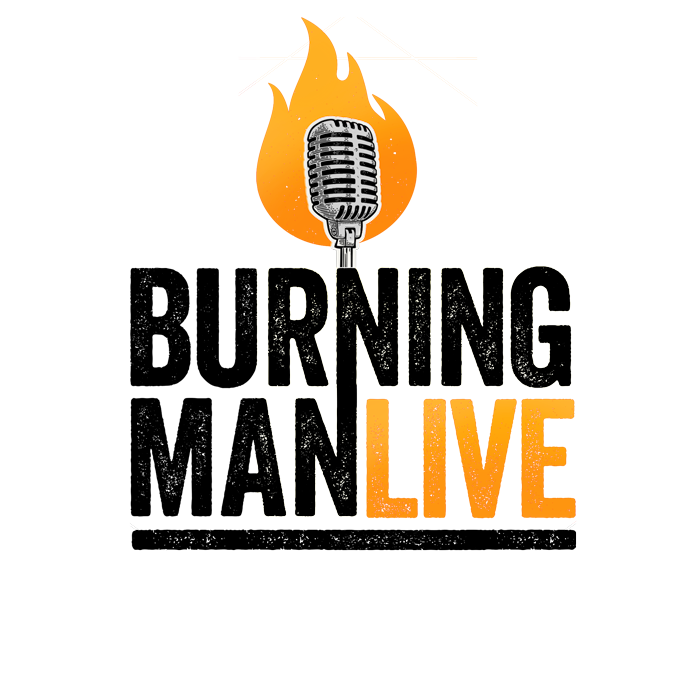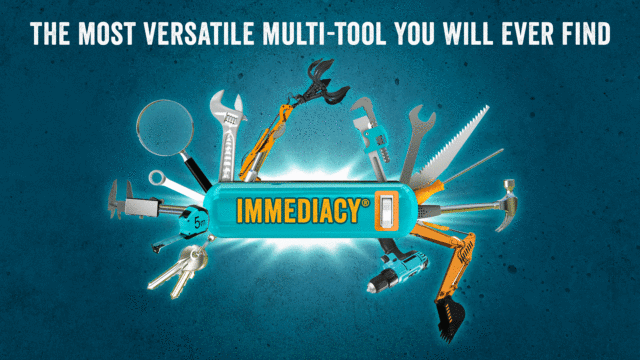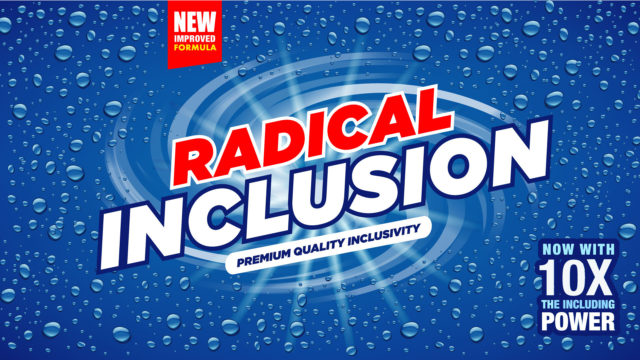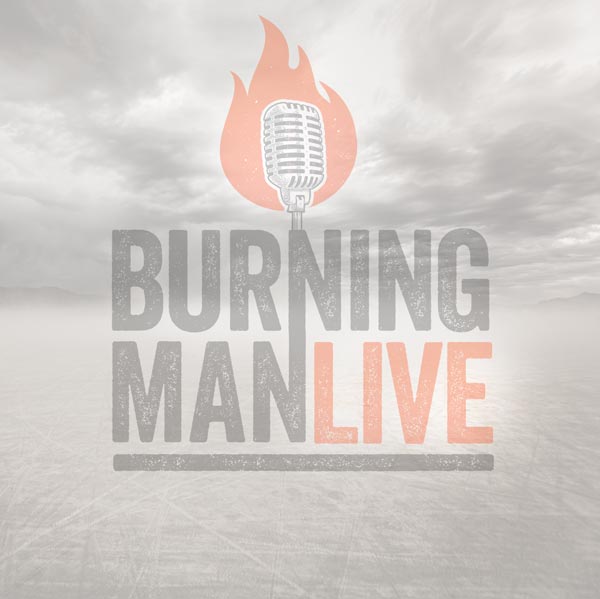
Resilient Do-Ocracy: Tales of Texas Burners
Black Rock City. We sometimes call it an unnatural disaster zone. We cooperate, survive and thrive in one of the harshest environments. Each year we iterate new ways, and we do it all because we want to.
Black Rock City attracts people who are resourceful, or it turns them into people who are. The resilient Burning Man community does disaster relief well. The nature of most residents of Black Rock City is reflected right there in the 10 Principles: Radical Self-Reliance, Communal Effort and Civic Responsibility.
Here in the US, the State of Texas is home to Burning Flipside, the first and longest-running Burning Man Regional Event. Texas froze in February. Very unusual. A series of devastating winter storms collapsed the power grid and the water system. The Burners of Austin Texas were some of the first to respond with mutual aid in their community.
In this episode Kate Ludlow, Stephanie Vyborny and Clovis Buford share their stories of resourcefulness and support (and a Frito Pie party) amid the chaos!
Transcript
STUART: Hey, invisible friends. Welcome back to Burning Man Live. If you spend any amount of time at all around Burners, or even if you just read, say the 10 Principles, you will notice pretty quickly that a lot of what we do has to do with survival, um, specifically with working together and coming up with ways to cooperate, to survive and thrive in harsh and unforgiving environments.
You know, we sometimes jokingly call our city, Black Rock City, an unnatural disaster area, or an intentional refugee camp. And it’s not entirely a joke because if you think about the skills that we’ve learned out there, they can be pretty useful wherever you live. And whenever the universe throws you a curveball, radical self-reliance, communal effort, civic responsibility.
Those are values that don’t go dark at the trash fence. And, and I’m not just talking here about the amazing work of Burners without borders in disaster relief, community resilience. Now I’m going to say that no matter where you live in the world, your average Burner is probably one of the best equipped people on your block in your neighborhood to deal with a disaster situation.
And I’ll go further and say that unlike other flavors of prepper, he’s probably a lot more likely to help your neighbors get through the ordeal. So not long ago, we saw this put to the test down in Texas for 10 days in February, a series of just devastating winter storms hammered the state single digit temperatures, blizzards, and it led to a, just a massive collapse of the electrical system. The grid failed, led to critical shortages of water, heat, food. We’re talking at least 82 people dead, $200 billion in damages.
Now, if you know your Burning Man history you’ll know that Texas and particularly the Austin area is home to one of our oldest and most active Burner communities. They started organizing all the way back in 1997, my God, and produced the first official Burning Man event outside of BlackRock city, a event called flip side. And they’ll proudly tell you about that year. That Flipside became Floodside when they got rained in and trapped at the event site until the waters eventually receded.
So it’s no big surprise that when the big freeze rolled into Texas, Our friends, the Austin Burners were some of the first to respond with mutual aid in their community. So our girl of action, Andie Grace sat down and talked with three of these folks about the experience. And I think there’s some important lessons for anyone who aspires to be radically self-reliant and a compassionate neighbor.
When disaster comes to your town, here’s Andie in conversation with Kate Ludlow, Stephanie Vyborny and Clovis Buford.
ANDIE: Thank you so much for being here and talking about the wild experience that you’ve had in the past few weeks in Austin, Texas, Steph, and Kate and Clovis. I don’t want to start with how’d you get to Burning Man, or what’s your involvement with the local scene, but I think we’ll get into that as we go. I know that you’re all connected because you’re active as local friends.
In the local Burning Man scene Clovis, you’re regional contact there of some time, you’ve all been deeply involved with Flipside and other things that happened when Flipside couldn’t happen. And when Bernie man couldn’t happen and when the shit hits the fan and it sounds like the shit hit the fan for you guys recently.
Yeah. And other things hit other things too. I was thinking about starting with Kate, Kate Ludlow. Hello. What went down as the storm was coming?
KATE: We just started preparing. Thankfully Stephie is a weather goddess and was giving us the warnings.
We knew it was going to get really bad, so we started putting out the fundraising efforts of Austin Mutual Aid because they knew that the unhoused communities were going to get severely overlooked. Filled up all of the water jugs, charged all the battery packs, took a bunch of clothes and hand warmers that my kid and I purchased together.
And then hunkered down and waited for whatever was going to happen. The first night it was kind of fun. The power was flickering and we were getting the flashlights out and teaching the kids where all the batteries were, and checking on your friends. We made a big pot of soup.
Then we woke up the next morning and it was looking pretty wild outside. At one o’clock in the morning I walked outside and there was 15 deer in my yard and the storm was coming in and it just looked like surreal, just whiteness coming at us. And then that’s when we started hearing like, okay, so-and-so’s power is out; so-and-so’s water is already out; so-and-so’s pipes have already frozen.
Rolling blackouts. People couldn’t drive anywhere. Businesses had really shut down. Sunday we realized: Nothing’s coming back on. This is how we are for days.
ANDIE: Steph, what was up at your house?
STEPHANIE: So I’m a professional disasterbaiter. We had already filled our bathtub full of water and prepared, and made sure our friends knew what they needed to know.
We just hunkered down and I started paying attention to how the City of Austin was trying to do the rolling blackouts and the state. It was a state-mandated power saving measure.
They turned off the power and it turns out you need power to have power to do rolling blackouts. So it just stopped. Something insane like 70% of Austin was without power and it stayed like that for days.
KATE: Without power. There was no rolling. We weren’t sharing.
ANDIE: At what point did you start thinking about outside of your front door and your neighbors?
KATE: There was a few smaller outreaches like call this person, check on them, get a small load of fire or whatever here, but everybody was still kind of thinking, okay, this can’t last for more than a day. It was still pretty. Tiny efforts at that point in time and it wasn’t safe to drive. So it was like, if you can walk over and dropped them off some soup. If you can take them some water right now, go do that.
When we woke up Tuesday morning and saw that it was still going on, I was calling my mom every two hours. Her power was out. I thought she was going to freeze to death in her house.
By Tuesday morning, that was when everyone’s like, there’s no help coming. We’re on our own. And that’s when the big push for resources started kicking in.
ANDIE: It sounds like you perceived that waterless-ness was going to be a problem really quickly for your immediate neighbors.
STEPHANIE: Yes. It was very clear with ERCOT asking the state of Texas to start doing these rolling blackouts. And it just kind of got stuck. The entire system was in bad shape. It turns out water treatment plants need power to be able to clean the water.
So you could kind of see on the map of Texas, as the storm moved and the cold air moved and that water’s probably going to become a problem very quickly. The other side of that is when you start having your local issues, your house pipes start bursting. The entire state of Texas has learned a lot about insulation, and where your water heaters are located in your house, and how that can go sideways.
Water mains began to break. Yeah, it was pretty early on that we realized doing things like not only saving up water for drinking, but flushing and cooking, and then realizing that other folk perhaps were less prepared or unable to save the water. A lot of people ended up flushing toilets with.
Snow for a while. It turns out in your house, if you have no power that snow doesn’t then melt. So that also became a wild problem. So we started our little driveway water treatment plant at my house to try to address people’s needs, smaller needs.
Right. Make sure that you have some dripping water to get you through this period of time, whatever that time was.
KATE: When we realized that people were going to start needing help every single one of us went to our garages and looked at our burning gear and our camping gear.
It was like, I’ve got extra containers, I’ve got a propane burner, I’ve got a propane heater. I can do this. And when Stephie says her water treatment plant, it looks like a meth lab. It was. Multiple Turkey, burners and fryers and boiling the water. Because at that point in time, water had come down to do you need like drinkable water?
Can you have electricity? Could you boil water? If we brought you unbold water? And so Stephie was just like, I’m going to boil a bunch of water in my driveway and there was. I think you had six burners going at once that I saw.
STEPHANIE: It was pretty ridiculous. Plus the hundred pound propane tank with the heater attachment because it turns out when you’re standing outside in 10 degrees Fahrenheit, it’s a little cold, because we’re very determined not to stop.
We learned very quickly that boiling water, even in large quantities, is not necessarily a problem or time-consuming. Storing it was a problem. And we had a limited amount of containers. We’re talking about three people who had pitched in immediately just on this block. And that was probably 20 five gallon jugs. So I do realize that we had more containers than some immediately, but yeah, it turns out it’s a, it’s a process. It’s a thing.
KATE: Yeah, water containers were actually at a certain point a bigger problem than finding water.
ANDIE: Wow. That makes sense.
KATE: We would show up these cubes of water at certain facilities, and they would just be like a little old lady and a pot, that she would be walking in the water inside.
Tuesday is also when the firewood operations started. I thought this was really cool because it sort of established like the command centers, I guess you would call them. A guy named Chad Writtenberry started one, just started chopping firewood in his yard and people could come pick it up.
Stephie had some extra firewood that she had purchased ahead of time and had plenty of extras and someone else brought some more over to Stephie’s house. And then, South Austin, Emily Taylor and Jacob Lewis, they just started chopping firewood and letting people come and grab it out of their driveway, and kind of delivering it all over town.
And that’s when JJ, this guy named JJ, just showed up and he’s like, “I’ve got a chainsaw, a three quarter ton truck and plumbing supplies.” And we’re like, “We love you. We love you, JJ. Go chop firewood.”
So the firewood operation kind of solidified a little bit of what we were doing and who was doing it.
ANDIE: Clovis, I want to hear in those early days, you’re a nexus of communication as a regional contact. And just by nature of who you are, what were you hearing from other people outside of these two and your friends here?
CLOVIS: Well, everyone was just checking in on each other. Chad’s places on the edge of town and it wasn’t long before he had people driving up out there. You had to have a pick up because you couldn’t drive otherwise. Most of them were four-wheel drives. And they just set up a damn firewood operation, five or six people cutting the wood and some of the trucks delivering it around town.
And they call in the Mutual Aid or they call into the Austin resource thing that these guys helped set up. A lot of it was online. Some of it was just telephone. That’s how everyone was communicating and deciding who could do what.
I was stuck at the house. I have a wonderful old Lincoln, but it’s not driving in the slow, you know, not the snow and ice. I was just stuck.
When they started those welding, what was supposed to be rolling blackouts the DLA as, as a fail. It turns out that their gas supply failed, which is what they were using for most of their big, big generation plants. And so they were just dropping out.
KATE: Clovis is bad at bragging on himself, but Clovis is a Needler. He needles at people, and he is our former site ops AF at Flipside. So, Clovis the whole time… Honestly, Stephie got out a little bit more than I did. We’re just internet warriors at this point in time. We’re just connecting people as fast as we can. Cause I couldn’t get out of my neighborhood.
Clovis would just lean over and he’d be like, you know, so-and-so’s got a generator, you know, so-and-so’s got it, this thing over here, you know, so-and-so’s got the skill to do that. Why don’t you say, you know, so-and-so’s got a truck and that was extremely useful.
CLOVIS: Institutional knowledge.
ANDIE: That makes sense. Yeah. This is about the web of connection between people and knowing each other, but I’m curious, at what point did it go beyond “I’m reaching out to my neighbors. I’m reaching out to the friends I know,” and that you found out about others who could use some help?
STEPHANIE: We actually started boiling water before there was a boil notice because we had a lot of neighbors who went ahead and had to shut their water off at the street because you have pipes bursting in the house and you know, maybe you don’t want to experience the thought and your house is flooded on top of everything else.
So the neighborhood just below me contains quite a few friends. The neighborhood that I’m in also. There are a lot of people I know right around here, for reasons…
KATE: It’s called The Burnerhood.
STEPHANIE: It is actually called The Burnerhood. I moved here, and I invited all of my friends to continue to rent and buy homes here because I want us to grow old together. This is just a very special neighborhood. I’m going to take care of my neighbors. Checking in on folk, making sure that people had food. A lot of these neighbors can’t leave their front door because it’s just too slick outside. So making sure that there’s food.
We knew that our neighborhood just below us had been out of power at that point by 30 something hours. So they’re quite cold. I checked in with some folks, arranged a drop-off and then I realized I don’t have a vehicle.
I drive a Nissan Versa. It’s a terrible, horrible car. And looking at the Miata in the driveway, it’s also not going to work. So our very dear friend, Tim Alexander, who lives up the road. We kind of joined forces and he has Danger Cart – Danger Cart – which is a mutant vehicle that is amazing. That currently has a two and a half foot long steel shark that shoots fire mounted to the top of it.
We realized the Danger Cart was actually managing the roads quite well. And so I texted him in the morning and said, “I found some folk that have a need. I need to move some wood down to this neighborhood Southwest.” And he’s like, “I’m in.”
And so eight o’clock in the morning, we’re loading wood into a trailer and somehow tied the trailer onto this mutant vehicle and start going through the neighborhood to deliver the wood. It was so much fun seeing all of the neighbor’s faces, “What are you guys doing?” We were happy, you know, if someone is outside and they look called, Hey, do you want some way, like we were bringing some of the way to our friends, but we had over brought for reason we wanted to share when we got to our destination. It was a scary ride. We pull up. And talk to her friend, Bonnie, who is just wonderful. She’s cold. Things were hard. Her neighbor directly next door had come out and he looked really rough. He looked like he was having a tough time. And so I walked over to him. I’m like, “Hi, I’m dropping off this wood. Do you need some wood, are you okay?”
It turned out he was not at all okay. He lives with his 80 something year old mother who lives on oxygen. And it turns out when the power’s out, then you don’t have oxygen. This poor man had just spent a couple of days and then would continue to do so staying up, taking a battery, going to his car, spending three hours in the car, charging that battery, take that battery inside to his mom’s swap them out, sit back in his car.
He started running out of gas. So at some point he tried to get out of the neighborhood to get gas. Gas started becoming a difficult thing to locate. He was not in good shape. And that was when we decided me and Tim and Danno that something had to be done.
He got back in Danger Cart, but back in the neighborhood and the boys stayed up until about 3:30 in the morning working.
They had a generator workshop. They found all of the generators that people had given them for parks. And they started trying to put them back together. So we could hand out generators to folk and went on a gas run so we could make sure that we could just hand people a generator and fuel. The next morning, we were able to go back to Bonnie’s house and put the generator between the two homes and we hooked up.
This is probably not something I should admit hooked up straight into the main power box to get their home, to have some heat, to work on the oxygen. We warned them to try to keep their power needs low. And then we were able to provide Bonnie enough for like an electric blanket and charge her phone with some fairy lights, but that kept them going for another couple of days.
And that was huge because we ended up reading these stories in the news here in Austin. There were a lot of other folks who weren’t so lucky and it turns out when you’re in that situation, you have to call nine one one. They have to take you to the hospital.
You’re. Far more safe in your own home, of course, than going to the hospital right now with the pandemic.
And a lot of people weren’t able to make it because the ambulance took too long to get to them because the roads were impossible.
It was a mess. And I’m glad we were able to find other ways of helping out.
KATE: Well, and also at this point, some of the hospitals that started losing power and the one by me was having to evacuate as well. So even if you could get to the hospital and if there weren’t a global pandemic, it was still not always an option to go to the hospital. Right. So that’s why like that’s even more incredible.
ANDIE: Well, Kate, you started noticing other needs and friends of yours started noticing other needs besides water and wood. Now that those critical needs were starting to burble up, but other stuff at a moment of relief like that pops up. What did you learn that neighbors were needing?
KATE: Plumbing supplies, plumbing supplies, plumbing supplies. T-connectors… just anything. We found a teacher that had been living off of food stamps and he just couldn’t walk to go to his normal pace to get the food stamps food. And so we, I had been making soup, so I just started making soup. And every time somebody would come by my house to grab something, I would just throw a bunch of soup in their car and just be like, get it to where it needs to go.
If it’s just for volunteers, if it’s just for yourself, if it’s just so somebody doesn’t have to make a meal tonight. So we got him some soup and I found him a fried apple pie that I had in my fridge freezer and got that guy, some food for a little bit of time.
ANDIE: Yeah. What did this phase where you all seeing other organizations show up and do or not.
KATE: Other grassroots organizations were killing it, but like Austin Mutual Aid, Chad had started Jed written Barry. It started to formalize a little bit more of what he had done. He was shifting from firewood over to water. He’ll go on to work with the city directly. I mean, he’s doing incredible stuff there.
There were some Burners who got hooked up with the Austin firefighters association. And those guys were doing a good job. It’s kind of the firefighters, but yeah, we still hadn’t really seen a lot of help from the city or the state.
KATE: Austin Guerilla Plumbers.
ANDIE: Yeah. Great.
STEPHANIE: Talk about some rock stars.
KATE: Yeah. Those folks are absolutely incredible. They showed up and just started taking donations of plumbing, supplies, organizing all of the parts. And then. Where can we go? When we got hooked up with them for the mobile home community alone, they’ve probably taken care of 20 to 30 trailers, and that’s just that one little two-day mission. Amazing. Yeah.
STEPHANIE: One of the big problems we were seeing with the apartment complexes and senior homes, once the water came back on, it turned out that there were a lot of just broken pipes. Right. A lot of the management companies kind of took a walk and just made themselves unavailable. So you had people who hadn’t had. Water for four or five days suddenly have water for a couple hours.
And for example, what the senior home we had dedicated a couple of Sundays to, it was a couple of broken sprinkler heads. They decided to shut down water to a couple of hundred. Old folks that really needed that water for a couple of sprinkler heads where they very well could have just, kept it off.
They could have found a way to handle it. That was not going to torture people that really don’t need that.
Folks like the Guerrilla plumber group, it was completely life-changing for a lot of these larger complexes that were desperate for water.
STEPHANIE: When we did start seeing any additional assistance, it was actually the city council members started trying to rally and get things moving. I was very impressed that the Austin city council members worked with a lot of the mutual aid, grassroots groups and tried to organize.
And there were a couple other groups that it makes sense, like XC, I helped boil water and make sure that there was water available for the people that she was working with through Dell Children’s Care Clinic. And those were, again, people you don’t want needing to go to the hospital there, you know, families with children that are very ill and it’s important to have food and water.
It was really delightful seeing the people that were able to step in and do stuff. I wish there had been a little bit more official assistance sooner.
KATE: This was also the day that our Representative was flying to Cancun, so it was a particularly special emotional feeling knowing that we were alone.
And if I’m being very honest, I think that that did spur some people to action that probably would have just said at home, trying to stay warm. I think a lot of people. We’re so angry about that. They rolled up their sleeves a little bit higher than they normally would have.
ANDIE: And you did say that when you were out volunteering, you did meet actually like other Burners that you hadn’t met through the stuff you’d done before. Who’d you run into that was helping out?
STEPHANIE: I think both of us probably had that experience. I, because I spend so much time kind of focused on Flipside.
It’s my home burn, an hour out of town. I ended up. And it was actually through excuse efforts with Dell children’s. She had rallied a bunch of the Burners that she was aware of Burning Man Burners that works, you know, DPW, heavy machinery people that, you know, we’re, we’re all friends of friends.
It was delightful. Just getting to know other awesome doers that I wouldn’t have had the opportunity not before. Didn’t have the opportunity to meet. So that was pretty special. It was also a lot of fun watching volunteers speak, but with one another and you know, well, who are you guys like? What is your connection and explaining well, there’s, there’s this art things that were involved in.
We go camping together. We make weird stuff together and, and people got very excited and curious, and I’m very hopeful that we will. We have, we have made a bunch of new friends. Love it.
ANDIE: And you ended up getting routed. You ended up getting routed toward a senior home, right. That needed help. That was underserved. Shall we say.
STEPHANIE: Right. So not only, we’re actually trying to do things and then deliveries, but as Kate had mentioned, you know, we also operate as switchboard managers. I was getting messages like my friend who lives out of town, his internet was bad.
He was very upset because he knew that say his friend in South Austin had started resorting to burning her clothes to stay warm.
When then later we heard our mutual friends that were burning their kitchen cabinets. So things were getting pretty rough and pretty desperate. So during our little excitement with the switchboards, it turned out Tim who again, had been over here helping every day and working on, he had a personal need.
His grandfather lives in one of these senior facilities and the management company abandoned them. It was, you know, a couple hundred units and they hadn’t heard anything from the company. And so of course they. We were without power for quite some time. And next thing you know, they’re out of water. If they have nothing to flush, it’s a multilevel units.
So you can’t really expect people to be able to carry heavy things up and down the stairs. Thankfully, Tim found out about it and asked, well, can we go work on this project? Of course, let’s go hang out with grandpa. And that was. When we arrived, it was very clear that what we had brought was not enough because we were not going to just help, you know, his grandfather and just a couple other people.
We obviously wanted to help everyone. There’s a swimming pool at the facility that had been locked up a best swimming pool water would have been very useful for flushing. Some of those units, the people in them, because they haven’t had water. If they hadn’t been able to flush waste in five days. So it was pretty tough situation.
So I was able to call up Robin and Mike, Ms. Shaffrey, who are like my favorite water fairies ever. And they brought up a cube. Of course we’ll come help. They brought up a cube. We got every container that we could. I started running out of containers, more so called problem and Michelle, anyone who was local and had the time and bandwidth, my personal favorite of this is, you know, not only were people going and getting water for themselves, but you have these, you know, amazing people on their walkers coming back down to get water for their neighbor that couldn’t come down. And then we were sending volunteers up into the buildings to knock on doors and try to bring people that couldn’t make it to the, where the water key was located to bring them water.
And at some point, Michelle (Saint Michelle is hilarious), I asked her if she had any additional containers because everyone was out. Well, there are no work containers and she showed up with several boxes of very clean wine bottles. And we filled those wine bottles with water and you had delighted holding arms full of wine bottles.
Walker. Thank you so much. They were just so happy and we were so pleased that they were so happy and it was, it was a very, it was a good time.
STEPHANIE: There was this swimming pool that had been locked up. There were two metal gate doors that were. It had a padlock. It was very clearly off limits to the residents, despite them not having any water to flush with, which turns out that that’s a big deal.
You need to be able to flush. So we did make sure that the management company was aware, but we made sure that one of those doors was opened before we left so that they had access because that was important.
ANDIE: Free the water. Kate, you ended up in connection with a mobile home. Community as well. Right? How did you connect there?
KATE: We had an awesome woman who came out of nowhere. Her name is Melanie. She got a call that just one family needed help, didn’t have water. And so we dispatch someone to take some cases of water, water jugs over.
And so from my end, we weren’t meeting Burners as much as we were meeting, not Burners who were just jumping in and doing what we were doing. So it was kind of. It was kind of awesome too. So they show up to deliver and it’s sort of like what Stephanie was saying. It’s the whole, the whole community. It’s not just this one, this one house.
So we started getting a little bit more and more involved. There’s probably 80 houses back there and. Half of them. None of them had water at that point in time. That’s 80 homes, times, however many people. And this 28is a community of people that are very do it yourself, very take care of themselves. But for various reasons, they remain off the grid and can’t really interact with the city, had the city even been offering help.
So that was kind of, you know, we were hitting Wednesday, Thursday, and that was sort of. We were still running up into small side missions, but that sort of became our big focus there. And we realized that hot food was going to be the first need. And I kind of made a joke to Emily and Jake, and I said, man, we should just get a food trailer in there, but there’s no food trailer in Austin that has food right now.
And we kind of thought that that was true. And then we found a food trailer in Austin that had food. She had an event get canceled and she just had all of this. Chili for Frito pie. And if you don’t, you don’t know if you don’t know me, I’m sort of known for throwing Frito pie parties. And I’m like, of course the universe will bless me with a Frito pie truck.
Yeah. So I started talking to the woman and it is Shelby’s rolling diner out of round rock. Texas is our beautiful Frito pie angel. I started talking to her and she’s kind of in her head thinking that this is a little bit more of a formal gig than it really is. So I’m trying to stress. I’m like, You can’t really take pictures of yourself, you know, you just, and she’s like, Oh yeah, I’m fine.
And I’m still like, you don’t really get it. And that’s when I pulled Clovis in and I was like, Hey, I’m a, I need to raise money. So we need some cash, like hitting up the ATM. Hey, Clovis, I and Clovis garnered me more donations for this little operation than anybody else. I raised a couple of grand overnight, more than a couple of grand.
And then the food truck lady showed up. The residents were super, super thrilled. And at the same time, a woman named Marie had coordinated with her church and got diapers upon diapers upon diapers, upon diapers, baby wipes, warm clothing. They did an awesome job 30sorting the clothes. So it wasn’t like trash clothes, canned food, you know, easy to eat.
Kind of things, Gatorade, water bottles, like purified water bottles, and they did that separate. And then we just coordinated the time and set up like a free store and dog food and the residents could come grab whatever they needed. Masks, gloves. Feminine hygiene products so they could kind of shop.
And then with the food trailer there, it sort of became very, I wasn’t there that day, but it became very jovial. Everyone started getting into kind of a good mood and the sun was shining a little bit and the weather was just not crappy for like a second. So that was really fun. To, to, to do. And then the woman Shelby, her wonderful food truck lady after she had seen what we were trying to do, she was like, you get this all at cost.
And it was a huge discount from what we were expecting to pay, which worked out well because that’s the day that we met Dora, who was a social worker for AISD, our school district here. And she kept tossing new families. She’s like, “I got a single mom, four kids, need diapers.” I’m like, “How much?” She’s like, “200.” I’m like, “Here’s 250.”
Then people were starting to need hotel rooms because the power had been out for so long. So we could pay a couple of nights at a hotel here and there. We got someone into an empty apartment, they just needed some pizza delivered. So we could fund that and almost every donation that would roll.
And it was like “Here’s 20 bucks. Clovis sent me your way.” I’m like, “Thanks, Clovis. Thanks, friends.”
ANDIE: Awesome. I want to know, you know this community quite well. What makes this group of people so ready for a moment like this?
CLOVIS: We’ve been through some pretty tough times in our Flipside.
I think flood side was a much of genesis of this is any fucking thing where we just flooded out. You know, we stepped on the lane, split up into three parties. Everybody had to take care of each other, you know, and getting people right after the BS, you know, people lost their cars. So. We’re pretty good at taking care of each other. It’s a long-term community.
ANDIE: So that’s the core group, but then when they go out and do this other people jump in and want to help too. And I think that makes them Burners personally, even if they never go to an event in their lives, but it seems like we’ll make it look like fun. Sometimes. Were you there on the chili day? How was that?
CLOVIS: Oh, it was good. Cause here this old white man pulled up in the white Lake and you know, privileged delivery and drop off a table and two chairs, I think, or three chairs and this community group, they see me. I’m a white man. I’ve got the mustache and a hat and I’m walking around.
Everyone’s kind of deferred to me and they just assumed I’d been charged, which just tickled me to know, because you know, none of this was my organized, you know, other raising money, you know, and I got that from the wider burn community, you know? So that was pretty impressive.
ANDIE: What do you two ladies think about what makes you ready for a moment like this physically? It sounds like Kate, you just gave a list of all the stuff to have on hand or that people need?
What do you think makes your community so resilient?
KATE: I think it’s just because we care about each other. I mean, it’s, you know, I saw some people kind of floundering in their efforts. And I guess if you had to do some sort of an afterburn, there’s some points you could say like, Oh, they didn’t do this perfectly, but now you could see everybody trying and everybody had the 34best intentions and, and, you know, It’s sort of like, okay, people that couldn’t leave their house, we’re still offering up some resources and people that had just been without power were saying, well, I can’t do anything, but here’s a hundred dollars to go through it, somebody else, or, you know, everybody just figured out what they could do and then they did do it.
And so when you add all of that into the pot, it just becomes like, okay, we need people that can just sit on the internet and say, okay, This is what’s happening on the internet and you need to go here and you need to go here and then we need those people as much as we need the people with the three quarter ton trucks and the water cubes. Right.
ANDIE: Yeah, Steph, you were saying you have a friend that works at the city. I don’t want to out anybody here, but as far as talking about future plans and that they wrote to you and said, we’re looking at how we could do this better in the future. And you had a LOT of notes.
STEPHANIE: It was a very sweet thing. Very nice thing. Oh, this friend works at the city. Also might be a Burner go figure. So he had some feels, and been paying attention to what I had been up to. And he reached out with a document he’s like, well, I have lots of thoughts about how we could do things better. And I’m pretty sure that you have a whole lot of feedback.
And I would like to include that. Well, thank you. And yes, that was a very well. Loved there sure was what to say. And I hope that he’s successful in his efforts to kind of help the city get prepared for next time, because you know, this polar vortex it’s, it’s literally caused by warm air at the top of the planet.
Climate change is a thing that we’re going to have to accept and, and plan for. And if we don’t, we’re going to be in a lot of trouble. Shoot, battery packs. Just having battery packs and enough of them to be able to hand out because communication became so challenging so quickly.
It was really nice seeing people happy to bust out their personal supply of whatnot. A lot of us do have generators, but it turns out just being able to charge your phone and being able to reach someone, to be able to ask for help when you need it is really important. And communicating amongst each other.
It does not hurt that we all respect each other very much, but yeah, as far as the community goes, we have a very thriving year round community and, and thankfully it’s not a community of people who, you know, do anything, but welcome the outsider.
So I kind of talked about this a minute ago, but. We, I think we all have new friends. We have new best friends. This we know who we can count on and that’s really good. Special.
KATE: The pandemic kind of hindered efforts in a lot of ways. The pandemic made it a lot harder to take care of each other. But at the same time, I mean, we’ve spent the last year.
Porch dropping food to each other in not just in the, that this person needs food. Just this person is really struggling mentally and emotionally. So let’s take this person a pie. Let’s take this person a bowl of soup. Let’s put a pot on this woman’s porch. Let’s drop off some stupid art over here. Let’s, you know, take a video of a rubber chicken and send it to Stephie.
So. We’ve already kind of been in disaster mode for a year. It was just like a graduation ceremony to master disaster.
ANDIE: Oh, I hate that. I mean, I love that we can laugh at that. I hate that it had to be because of this, but it’s just really inspiring to hear all these stories and it feel. That connection. Like I’ve cried talking to you guys to lead up to this conversation and I’m tearing up again right now. It just makes me really happy to know that we’re figuring out how to be resilient when, when things get really, really bad.
And I know there’s, you know, some estimated $195 billion. With a B dollars of repair and clean up and recovery, that’s coming your way and your state. And thank you. Well, thank you all, very, so much for being part of the solution.
KATE: The number of people that should be getting giant gold stars is like bigger than any number, any, any B with a billion. There’s not enough time for me to list every person that should get a high five for what they’ve pulled off
CLOVIS: Lotta stars out there!
ANDIE: I am super grateful to you guys for talking to us today and for all that you do all the time when we’re having fun and when we’re not having so much fun and it’s been really inspiring to hear all these stories. Thank you so much.
KATE: You’re very welcome. Good to be here.
ANDIE: I really love you all.
KATE: I love you.
STEPHANIE: Love you.
CLOVIS: Love seeing your face.
ANDIE: Go forth and go with the power… Bye.
CLOVIS: Okay.
KATE: It should also be noted that some of these skills kind of came from the Andie Grace skill of ‘how do we take care of things with shit sitting though.’
ANDIE: I don’t know. I don’t know. I’m just a brick in the wall.
STUART: Burning Man Live is a production of the Philosophical Center of Burning Man Project made possible by generous and quite possibly tax deductible donations made by listeners like you at donate.burningman.org.
Thank you to everyone who helped put the show together: our fabulous guests, our producer Andie Grace, our Technical Producer and Story Editor Michael Vav.
Who am I forgetting? Oh yeah. Thanks, Larry.
more

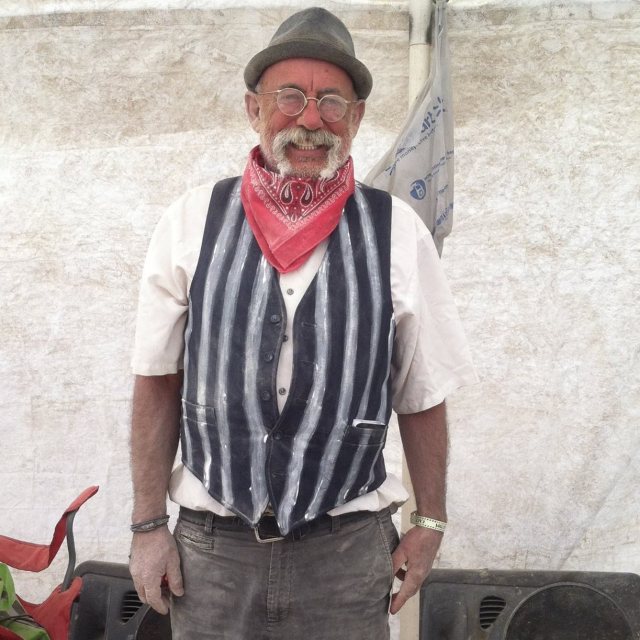 Clovis Buford
Clovis Buford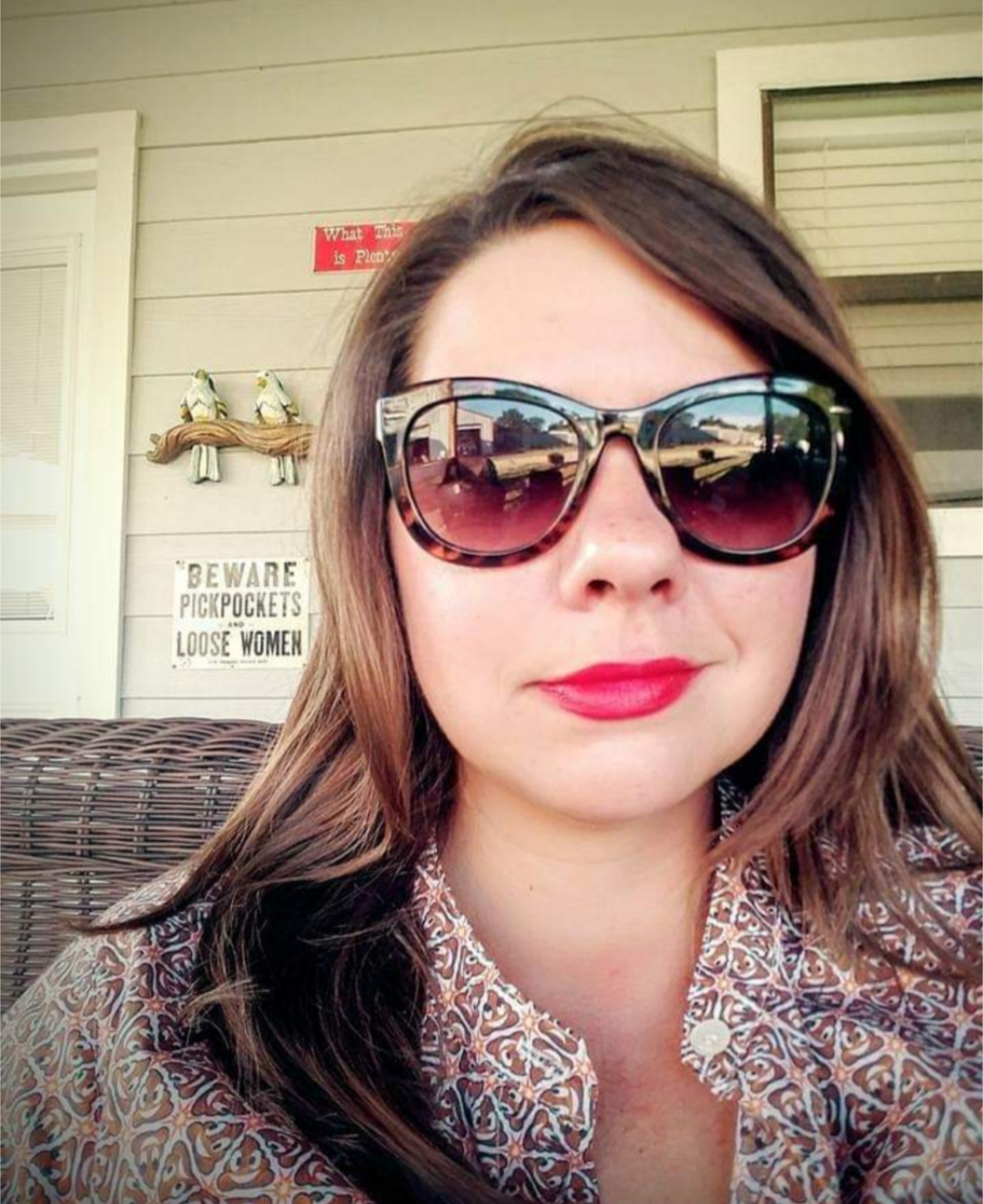 Kate Ludlow
Kate Ludlow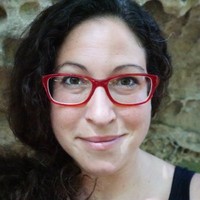 Stephanie Vyborny
Stephanie Vyborny
